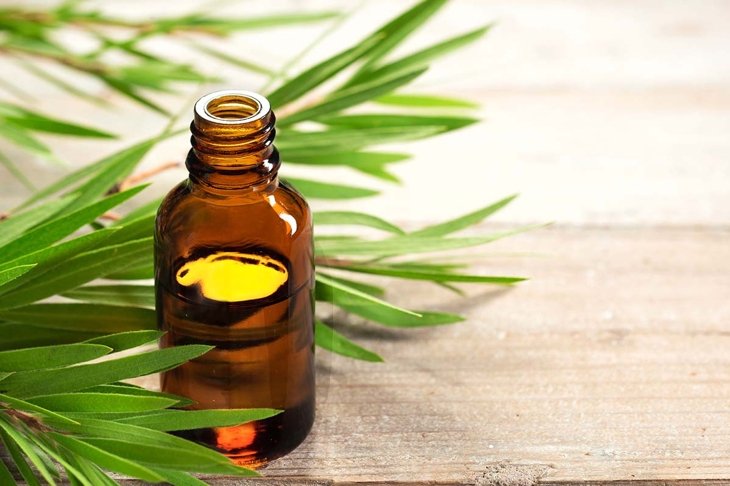
It may not be the most pleasant-smelling essential oil you come across, but there’s no denying tea tree oil’s potency. It’s been proven effective against skin conditions, used as a disinfectant, and successful at killing houseflies. This oil is truly essential.
01
Repels insects
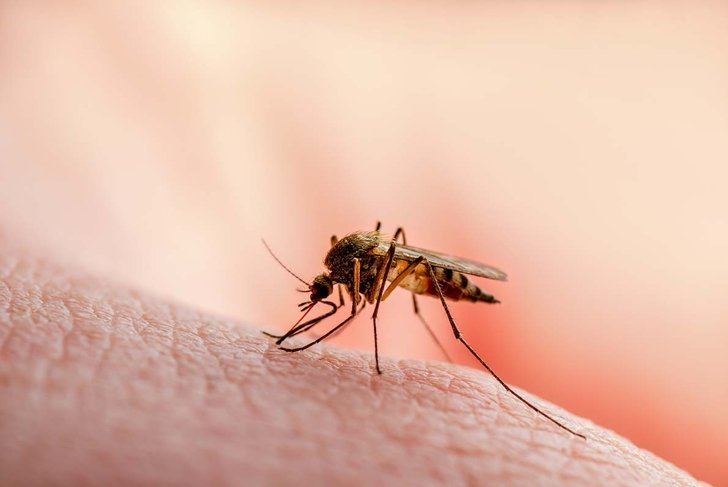
Nobody likes mosquito bites. They’re itchy, unsightly, and sometimes painful. By using insect repellents, you can minimize your risk of getting bit. However, conventional bug sprays contain chemicals, such as DEET, that may irritate the skin and cause other adverse health effects. Tea tree oil is a more natural alternative to repel bugs and kill houseflies. Consider mixing up your own tea tree oil bug spray or purchase an insect repellent with tea tree oil as an ingredient.
02
Helps wounds heal
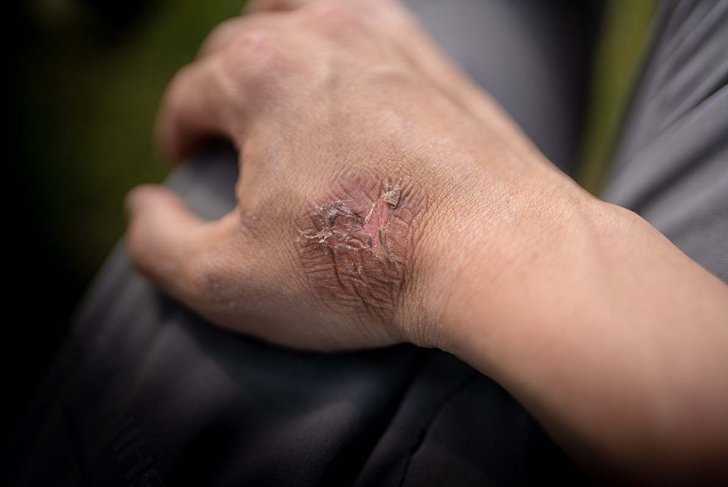
From paper cuts to burns, skin wounds need to be treated effectively before they progress to an infection. Tea tree oil has been used for centuries to treat skin abrasions and for good reason. Its anti-inflammatory and antibacterial properties make it an effective topical treatment for wounds, and it has been proven to heal wounds quickly.
Tea tree oil precautions
Check with your health care practitioner before using tea tree oil as a treatment. Don’t ingest tea tree oil. Before applying tea tree oil to any area of the body as a remedy, first test a small patch of skin on arms or legs with 100 percent oil; watch for any redness or irritation before continuing use.
03
Reduces acne
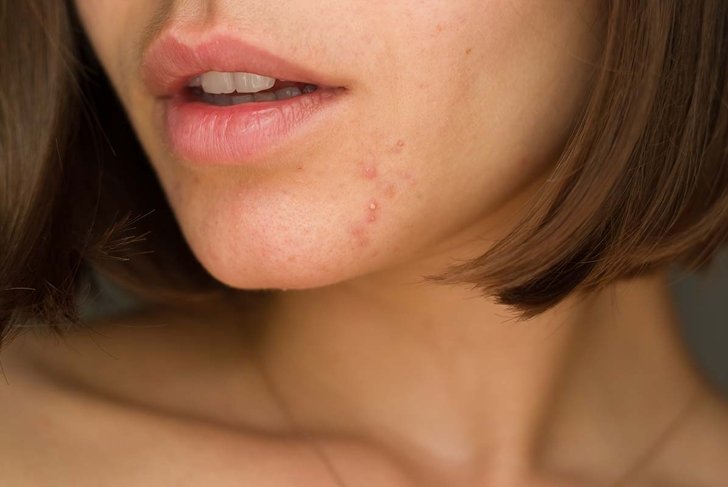
Pimples, zits, blackheads, cysts—no matter what you call them, no one welcomes acne. Many people go to great lengths to camouflage acne and even greater lengths to get rid of it. Although there are medications to treat acne, there is growing concern about antibiotic resistance and dermal toxicity. Tea tree oil is a more natural and effective treatment in clearing up mild to moderate acne. In one study, participants used tea tree oil gel and face wash. After 12 weeks, there was a significant decrease in acne.
04
Kills oral bacteria

Dental cavities are one of the most common oral health issues. Brushing your teeth is an effective way to prevent cavities and other micro-organisms from thriving in your mouth. Unfortunately, your toothbrush is a haven for harmful bacteria. Each time you reuse it, you run the risk of contamination. Soaking your toothbrush in a tea tree oil solution can significantly reduce bacteria on it.
05
Eases allergic reactions

Contact eczema, or dermatitis, occurs when you encounter a substance that makes your skin red and itchy. While most reactions aren’t extreme enough to warrant concern, contact dermatitis can be very uncomfortable. Your doctor may prescribe steroidal creams or medications to provide relief. A more natural alternative to those prescriptions is tea tree oil. In one study, diluted tea tree oil reduced contact dermatitis and hives by 40 percent. It was found to be more effective than other treatments, including zinc oxide and a steroidal cream.
06
Eliminates candida
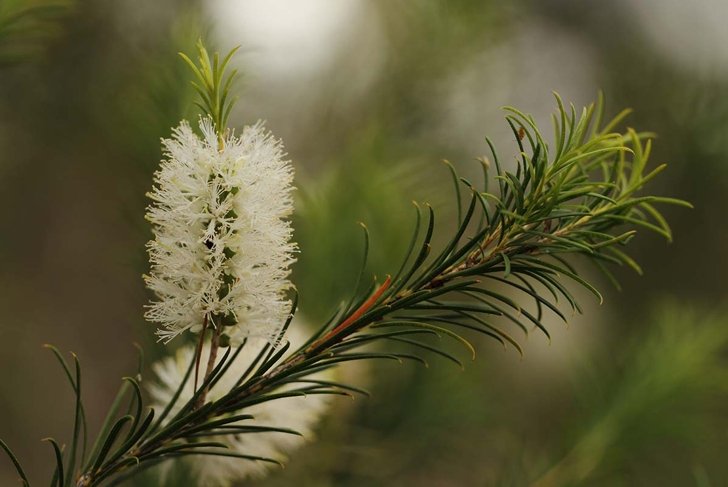
Candida is a type of yeast that causes a fungal infection called candidiasis. These infections are found in the mouth, throat, vagina, and gut. Fungal infections are usually treated with antifungal medications. Infections have become increasingly difficult to treat in recent years due to microbial resistance. Tea tree oil may be an effective alternative treatment. One of its components, terpinen-4-ol, is highly active against these microbes.
07
Treats psoriasis
 Psoriasis affects about 125 million people worldwide. Its signature rash—a silvery, scaly patch—is often found on the knees, scalp, elbows, lower back, and chest. While there are medications to treat psoriasis, they often come with many side effects. Due to its anti-inflammatory properties, tea tree oil may treat psoriasis, particularly scalp psoriasis. There are shampoos made with tea tree oil, but you can also add it to your own shampoo.
Psoriasis affects about 125 million people worldwide. Its signature rash—a silvery, scaly patch—is often found on the knees, scalp, elbows, lower back, and chest. While there are medications to treat psoriasis, they often come with many side effects. Due to its anti-inflammatory properties, tea tree oil may treat psoriasis, particularly scalp psoriasis. There are shampoos made with tea tree oil, but you can also add it to your own shampoo.
08
Treats nail fungus
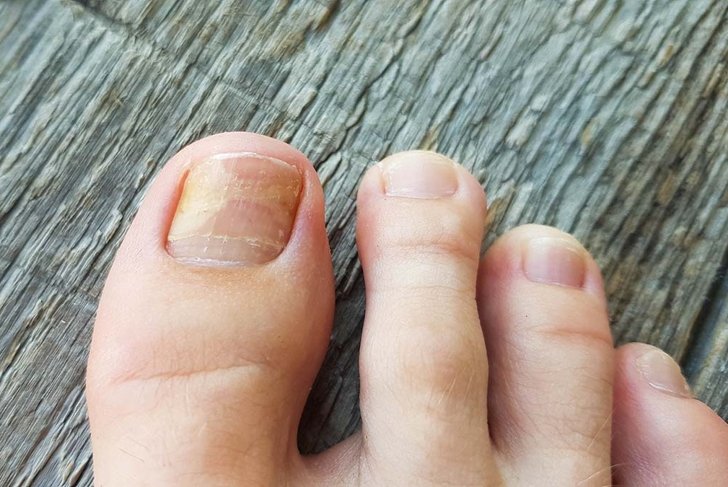
Nail fungus makes up 50 percent of all nail conditions. The oral medications for nail fungus have unwanted side effects and may interact with other drugs, and antifungal creams have incomplete efficacy as well as unwanted side effects. Fortunately, tea tree oil can be used as an effective treatment against nail fungus just as it can with candida.
09
Eliminates dangerous bacteria

Certain strains of E. coli can have serious health consequences, including food poisoning, pneumonia, and urinary tract infections. By disinfecting surfaces that come into contact with these bacteria, we limit our risk of exposure. Tea tree oil has proven to be an effective disinfectant. In research studies, tea tree oil severely inhibited E. coli.
To make a natural all-purpose cleaner, in a clean spray bottle, mix a cup of water with 2 1/2 tsp (12 mL) 100 percent tea tree oil. For a citrusy scent and even more cleaning power, add 2 1/2 tsp (12 mL) lemon essential oil.
10
Reduces dandruff

There’s plenty of anti-dandruff shampoos on the market today and plenty of reasons to avoid them. They may cause side effects, such as itchiness, skin irritation, and skin and hair staining, especially if used long-term. In animal and occupational studies, one of anti-dandruff shampoo’s ingredients, coal tar, has been linked to an increased risk of cancer. Tea tree oil shampoo is a safe alternative used to treat dandruff. Not only can tea tree oil unclog pores and reduce yeast, but it also has antifungal properties.






























